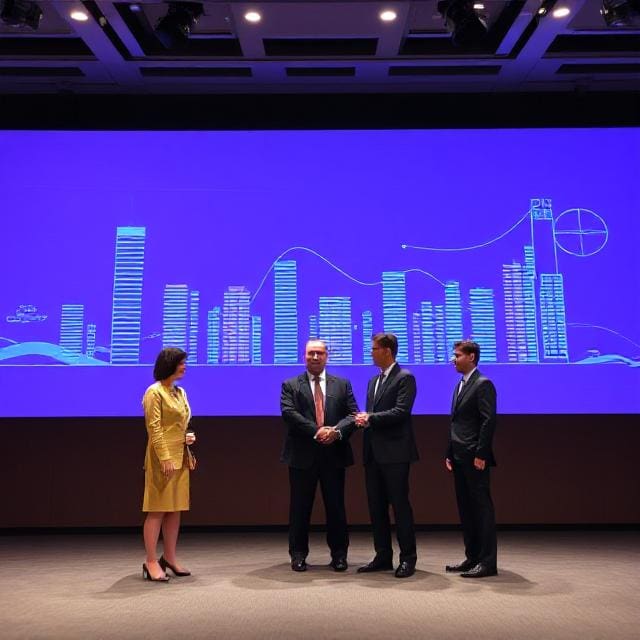Productivity and the challenge of Reforms in a collaborative perspective
Albania’s economic history shows that the country has gone through different periods of growth, often closely linked to new political spaces and economic opportunities. After 1991, economic liberalization and large-scale privatizations created an initial boost in productivity, but it was often fragmented and uncertain due to the lack of strong institutions and technological capacities.
Meanwhile, regional countries and the European Union leveraged digital technologies and information to accelerate competition and productivity growth, while Albania lagged behind, reflecting a clear gap in productivity and per capita income compared to more developed European countries.
One of the clearest indicators of this gap is that Albania’s GDP per capita is around 40–50% lower than the EU average, and much of this gap is linked to low productivity in key sectors such as services, industry, and agriculture. This phenomenon is not merely a matter of lack of capital or investment; it reflects structural gaps that limit the country’s ability to utilize its workforce and modern technology effectively.
In this context, discussions on productivity growth cannot be limited to isolated reforms. Albania needs an integrated approach connecting the labor market, human capital development, public investment efficiency, and technological innovation. Education and technological skills remain fragmented, while the lack of a qualified workforce hinders the potential for sustainable growth. Investments in technical training and digital skills are a key prerequisite for improving productivity at both sectoral and national levels.
Another critical dimension is the efficiency of public spending and the fiscal system. Data show that public investments often do not translate into tangible productivity gains due to suboptimal management and bureaucracy. Therefore, the discussion should focus not only on fiscal packages or laws but also on measurable outcomes for citizens and businesses, extending the analysis to how the state can support real economic development.
Albania can also learn from regional success stories such as Estonia and Poland, where digitalization and innovation were integrated into national strategies, creating an environment in which small businesses and startups have access to capital, technology, and international markets. This shows that potential exists, but it requires a collaborative approach between institutions, businesses, and the academic community to overcome structural gaps.
However, a core part of Albania’s challenge is not purely technical or financial. Politics has played a decisive role in the direction of reforms, often prioritizing short-term political interests and the maintenance of power over the transformation of economic structures. This unstable political will, often accompanied by narrow interests and clientelism, has hindered the implementation of sustainable reforms and resulted in lost time with tangible costs for economic growth. Many policies and public investments were designed not to maximize productivity but to secure short-term political gains or to serve specific electoral groups.
This phenomenon is not isolated but reflects a well-known feature of Balkan politics, and particularly Albanian politics. Frequent changes in government formats, lack of consensus, and short-term priorities hinder the implementation of strategic plans and leave many initiatives unfinished at the institutional and economic levels. Consequently, Albania has missed valuable opportunities to implement sustainable reforms, widening the gap with other regional countries and the EU.
In this sense, any strategy for productivity growth must include an analysis of the political climate and governance culture, aiming for an open dialogue between institutions, civil society, and economic actors. Through this collaboration, conditions can be created for sustainable growth, where human capital, technology, governance, and fiscal policy work together.
In conclusion, Albania has a history of reforms and regional models that can serve as guidance, but the main challenge is not only technical. It relates to leadership behavior, long-term vision, and the ability to overcome the logic of narrow political gains. Discussing this topic is a first step toward creating a shared platform for collaboration, where politics and the economy can dialogue so that Albania can recover lost time, neutralize the damage caused by unstable politics, and gradually approach regional and European development standards.




Leave a Reply
You must be logged in to post a comment.